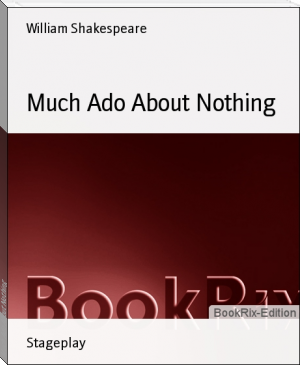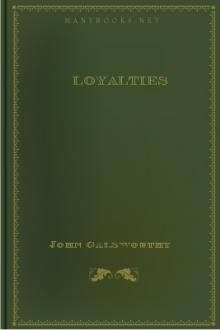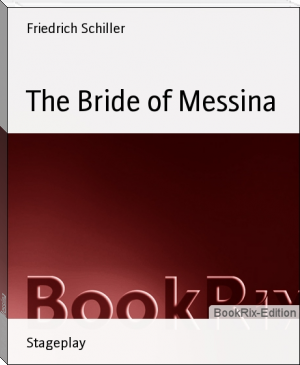Much Ado About Nothing, William Shakespeare [books to read for self improvement .TXT] 📗

- Author: William Shakespeare
Book online «Much Ado About Nothing, William Shakespeare [books to read for self improvement .TXT] 📗». Author William Shakespeare
pains to thank me,' that's as much as to say, Any pains that I take for you is as easy as thanks. If I do not take pity of her, I am a villain; if I do not love her, I am a Jew. I will go get her picture.
[Exit.]
ACT 3.
Scene I. Leonato's Garden.
[Enter HERO, MARGARET, and URSULA.]
HERO. Good Margaret, run thee to the parlour; There shalt thou find my cousin Beatrice Proposing with the prince and Claudio: Whisper her ear, and tell her, I and Ursala Walk in the orchard, and our whole discourse Is all of her; say that thou overheard'st us, And bid her steal into the pleached bower, Where honey-suckles, ripen'd by the sun, Forbid the sun to enter; like favourites, Made proud by princes, that advance their pride Against that power that bred it. There will she hide her, To listen our propose. This is thy office; Bear thee well in it and leave us alone.
MARGARET. I'll make her come, I warrant you, presently.
[Exit.]
HERO. Now, Ursula, when Beatrice doth come, As we do trace this alley up and down, Our talk must only be of Benedick: When I do name him, let it be thy part To praise him more than ever man did merit. My talk to thee must be how Benedick Is sick in love with Beatrice: of this matter Is little Cupid's crafty arrow made, That only wounds by hearsay.
[Enter BEATRICE, behind.]
Now begin; For look where Beatrice, like a lapwing, runs Close by the ground, to hear our conference.
URSULA. The pleasant'st angling is to see the fish Cut with her golden oars the silver stream, And greedily devour the treacherous bait: So angle we for Beatrice; who even now Is couched in the woodbine coverture. Fear you not my part of the dialogue.
HERO. Then go we near her, that her ear lose nothing Of the false sweet bait that we lay for it.
[They advance to the bower.]
No, truly, Ursula, she is too disdainful; I know her spirits are as coy and wild As haggards of the rock.
URSULA. But are you sure That Benedick loves Beatrice so entirely?
HERO. So says the prince, and my new-trothed lord.
URSULA. And did they bid you tell her of it, madam?
HERO. They did entreat me to acquaint her of it; But I persuaded them, if they lov'd Benedick, To wish him wrestle with affection, And never to let Beatrice know of it.
URSULA. Why did you so? Doth not the gentleman Deserve as full as fortunate a bed As ever Beatrice shall couch upon?
HERO. O god of love! I know he doth deserve As much as may be yielded to a man; But nature never fram'd a woman's heart Of prouder stuff than that of Beatrice; Disdain and scorn ride sparkling in her eyes, Misprising what they look on, and her wit Values itself so highly, that to her All matter else seems weak. She cannot love, Nor take no shape nor project of affection, She is so self-endear'd.
URSULA. Sure I think so; And therefore certainly it were not good She knew his love, lest she make sport at it.
HERO. Why, you speak truth. I never yet saw man, How wise, how noble, young, how rarely featur'd, But she would spell him backward: if fair-fac'd, She would swear the gentleman should be her sister; If black, why, Nature, drawing of an antick, Made a foul blot; if tall, a lance ill-headed; If low, an agate very vilely cut; If speaking, why, a vane blown with all winds; If silent, why, a block moved with none. So turns she every man the wrong side out, And never gives to truth and virtue that Which simpleness and merit purchaseth.
URSULA. Sure, sure, such carping is not commendable.
HERO. No; not to be so odd, and from all fashions, As Beatrice is, cannot be commendable. But who dare tell her so? If I should speak, She would mock me into air: O! she would laugh me Out of myself, press me to death with wit. Therefore let Benedick, like cover'd fire, Consume away in sighs, waste inwardly: It were a better death than die with mocks, Which is as bad as die with tickling.
URSULA. Yet tell her of it: hear what she will say.
HERO. No; rather I will go to Benedick, And counsel him to fight against his passion. And, truly, I'll devise some honest slanders To stain my cousin with. One doth not know How much an ill word may empoison liking.
URSULA. O! do not do your cousin such a wrong. She cannot be so much without true judgment, - Having so swift and excellent a wit As she is priz'd to have, - as to refuse So rare a gentleman as Signior Benedick.
HERO. He is the only man of Italy, Always excepted my dear Claudio.
URSULA. I pray you, be not angry with me, madam, Speaking my fancy: Signior Benedick, For shape, for bearing, argument and valour, Goes foremost in report through Italy.
HERO. Indeed, he hath an excellent good name.
URSULA. His excellence did earn it, ere he had it. When are you married, madam?
HERO. Why, every day, to-morrow. Come, go in: I'll show thee some attires, and have thy counsel Which is the best to furnish me to-morrow.
URSULA. She's lim'd, I warrant you: we have caught her, madam.
HERO. If it prove so, then loving goes by haps: Some Cupid kills with arrows, some with traps.
[Exeunt HERO and URSULA.]
BEATRICE. [Advancing.] What fire is in mine ears? Can this be true?
Stand I condemn'd for pride and scorn so much? Contempt, farewell! and maiden pride, adieu!
No glory lives behind the back of such. And, Benedick, love on; I will requite thee,
Taming my wild heart to thy loving hand: If thou dost love, my kindness shall incite thee
To bind our loves up in a holy band; For others say thou dost deserve, and I Believe it better than reportingly.
[Exit.]
Scene 2. A Room in LEONATO'S House.
[Enter DON PEDRO, CLAUDIO, BENEDICK, and LEONATO.]
DON PEDRO. I do but stay till your marriage be consummate, and then go I toward Arragon.
CLAUDIO. I'll bring you thither, my lord, if you'll vouchsafe me.
DON PEDRO. Nay, that would be as great a soil in the new gloss of your marriage, as to show a child his new coat and forbid him to wear it. I will only be bold with Benedick for his company; for, from the crown of his head to the sole of his foot, he is all mirth; he hath twice or thrice cut Cupid's bowstring, and the little hangman dare not shoot at him. He hath a heart as sound as a bell, and his tongue is the clapper; for what his heart thinks his tongue speaks.
BENEDICK. Gallants, I am not as I have been.
LEONATO. So say I: methinks you are sadder.
CLAUDIO. I hope he be in love.
DON PEDRO. Hang him, truant! there's no true drop of blood in him, to be truly touched with love. If he be sad, he wants money.
BENEDICK. I have the tooth-ache.
DON PEDRO. Draw it.
BENEDICK. Hang it.
CLAUDIO. You must hang it first, and draw it afterwards.
DON PEDRO. What! sigh for the tooth-ache?
LEONATO. Where is but a humour or a worm?
BENEDICK. Well, every one can master a grief but he that has it.
CLAUDIO. Yet say I, he is in love.
DON PEDRO. There is no appearance of fancy in him, unless it be a fancy that he hath to strange disguises; as to be a Dutchman to-day, a Frenchman to-morrow; or in the shape of two countries at once, as a German from the waist downward, all slops, and a Spaniard from the hip upward, no doublet. Unless he have a fancy to this foolery, as it appears he hath, he is no fool for fancy, as you would have it appear he is.
CLAUDIO. If he be not in love with some woman, there is no believing old signs: a' brushes his hat a mornings; what should that bode?
DON PEDRO. Hath any man seen him at the barber's?
CLAUDIO. No, but the barber's man hath been seen with him; and the old ornament of his cheek hath already stuffed tennis-balls.
LEONATO. Indeed he looks younger than he did, by the loss of a beard.
DON PEDRO. Nay, a' rubs himself with civet: can you smell him out by that?
CLAUDIO. That's as much as to say the sweet youth's in love.
DON PEDRO. The greatest note of it is his melancholy.
CLAUDIO. And when was he wont to wash his face?
DON PEDRO. Yea, or to paint himself? for the which, I hear what they say of him.
CLAUDIO. Nay, but his jesting spirit; which is now crept into a lute-string, and new-governed by stops.
DON PEDRO. Indeed, that tells a heavy tale for him. Conclude, conclude he is in love.
CLAUDIO. Nay, but I know who loves him.
DON PEDRO. That would I know too: I warrant, one that knows him not.
CLAUDIO. Yes, and his ill conditions; and in despite of all, dies for him.
DON PEDRO. She shall be buried with her face upwards.
BENEDICK. Yet is this no charm for the tooth-ache. Old signior, walk aside with me: I have studied eight or nine wise words to speak to you, which these hobby-horses must not hear.
[Exeunt BENEDICK and LEONATO.]
DON PEDRO. For my life, to break with him about Beatrice.
CLAUDIO. 'Tis even so. Hero and Margaret have by this played their parts with Beatrice, and then the two bears will not bite one another when they meet.
[Enter DON JOHN.]
DON JOHN. My lord and brother, God save you!
DON PEDRO. Good den, brother.
DON JOHN. If your leisure served, I would speak with you.
DON PEDRO. In private?
DON JOHN. If it please you; yet Count Claudio may hear, for what I would speak of concerns him.
DON PEDRO. What's the matter?
DON JOHN. [To CLAUDIO.] Means your lordship to be married to-morrow?
DON PEDRO. You know he does.
DON JOHN. I know not that, when he knows what I know.
CLAUDIO. If there be any impediment, I pray you discover it.
DON JOHN. You may think I love you not: let that appear hereafter, and aim better at me by that I now will manifest. For my brother, I think he holds you well, and in dearness of heart hath holp to effect your ensuing marriage; surely suit ill-spent and labour ill bestowed!
DON PEDRO. Why, what's the matter?
DON JOHN. I came hither to tell you; and circumstances shortened, - for she has been too long a talking of, - the lady is disloyal.
CLAUDIO. Who, Hero?
DON JOHN. Even she: Leonato's Hero, your Hero, every man's Hero.
CLAUDIO. Disloyal?
DON JOHN. The word's too good to paint out her wickedness; I could say, she were worse: think you of a worse title, and I will fit her to it. Wonder not till further warrant: go but with me to-night, you shall see her chamber-window entered, even the night before her wedding-day: if you love
[Exit.]
ACT 3.
Scene I. Leonato's Garden.
[Enter HERO, MARGARET, and URSULA.]
HERO. Good Margaret, run thee to the parlour; There shalt thou find my cousin Beatrice Proposing with the prince and Claudio: Whisper her ear, and tell her, I and Ursala Walk in the orchard, and our whole discourse Is all of her; say that thou overheard'st us, And bid her steal into the pleached bower, Where honey-suckles, ripen'd by the sun, Forbid the sun to enter; like favourites, Made proud by princes, that advance their pride Against that power that bred it. There will she hide her, To listen our propose. This is thy office; Bear thee well in it and leave us alone.
MARGARET. I'll make her come, I warrant you, presently.
[Exit.]
HERO. Now, Ursula, when Beatrice doth come, As we do trace this alley up and down, Our talk must only be of Benedick: When I do name him, let it be thy part To praise him more than ever man did merit. My talk to thee must be how Benedick Is sick in love with Beatrice: of this matter Is little Cupid's crafty arrow made, That only wounds by hearsay.
[Enter BEATRICE, behind.]
Now begin; For look where Beatrice, like a lapwing, runs Close by the ground, to hear our conference.
URSULA. The pleasant'st angling is to see the fish Cut with her golden oars the silver stream, And greedily devour the treacherous bait: So angle we for Beatrice; who even now Is couched in the woodbine coverture. Fear you not my part of the dialogue.
HERO. Then go we near her, that her ear lose nothing Of the false sweet bait that we lay for it.
[They advance to the bower.]
No, truly, Ursula, she is too disdainful; I know her spirits are as coy and wild As haggards of the rock.
URSULA. But are you sure That Benedick loves Beatrice so entirely?
HERO. So says the prince, and my new-trothed lord.
URSULA. And did they bid you tell her of it, madam?
HERO. They did entreat me to acquaint her of it; But I persuaded them, if they lov'd Benedick, To wish him wrestle with affection, And never to let Beatrice know of it.
URSULA. Why did you so? Doth not the gentleman Deserve as full as fortunate a bed As ever Beatrice shall couch upon?
HERO. O god of love! I know he doth deserve As much as may be yielded to a man; But nature never fram'd a woman's heart Of prouder stuff than that of Beatrice; Disdain and scorn ride sparkling in her eyes, Misprising what they look on, and her wit Values itself so highly, that to her All matter else seems weak. She cannot love, Nor take no shape nor project of affection, She is so self-endear'd.
URSULA. Sure I think so; And therefore certainly it were not good She knew his love, lest she make sport at it.
HERO. Why, you speak truth. I never yet saw man, How wise, how noble, young, how rarely featur'd, But she would spell him backward: if fair-fac'd, She would swear the gentleman should be her sister; If black, why, Nature, drawing of an antick, Made a foul blot; if tall, a lance ill-headed; If low, an agate very vilely cut; If speaking, why, a vane blown with all winds; If silent, why, a block moved with none. So turns she every man the wrong side out, And never gives to truth and virtue that Which simpleness and merit purchaseth.
URSULA. Sure, sure, such carping is not commendable.
HERO. No; not to be so odd, and from all fashions, As Beatrice is, cannot be commendable. But who dare tell her so? If I should speak, She would mock me into air: O! she would laugh me Out of myself, press me to death with wit. Therefore let Benedick, like cover'd fire, Consume away in sighs, waste inwardly: It were a better death than die with mocks, Which is as bad as die with tickling.
URSULA. Yet tell her of it: hear what she will say.
HERO. No; rather I will go to Benedick, And counsel him to fight against his passion. And, truly, I'll devise some honest slanders To stain my cousin with. One doth not know How much an ill word may empoison liking.
URSULA. O! do not do your cousin such a wrong. She cannot be so much without true judgment, - Having so swift and excellent a wit As she is priz'd to have, - as to refuse So rare a gentleman as Signior Benedick.
HERO. He is the only man of Italy, Always excepted my dear Claudio.
URSULA. I pray you, be not angry with me, madam, Speaking my fancy: Signior Benedick, For shape, for bearing, argument and valour, Goes foremost in report through Italy.
HERO. Indeed, he hath an excellent good name.
URSULA. His excellence did earn it, ere he had it. When are you married, madam?
HERO. Why, every day, to-morrow. Come, go in: I'll show thee some attires, and have thy counsel Which is the best to furnish me to-morrow.
URSULA. She's lim'd, I warrant you: we have caught her, madam.
HERO. If it prove so, then loving goes by haps: Some Cupid kills with arrows, some with traps.
[Exeunt HERO and URSULA.]
BEATRICE. [Advancing.] What fire is in mine ears? Can this be true?
Stand I condemn'd for pride and scorn so much? Contempt, farewell! and maiden pride, adieu!
No glory lives behind the back of such. And, Benedick, love on; I will requite thee,
Taming my wild heart to thy loving hand: If thou dost love, my kindness shall incite thee
To bind our loves up in a holy band; For others say thou dost deserve, and I Believe it better than reportingly.
[Exit.]
Scene 2. A Room in LEONATO'S House.
[Enter DON PEDRO, CLAUDIO, BENEDICK, and LEONATO.]
DON PEDRO. I do but stay till your marriage be consummate, and then go I toward Arragon.
CLAUDIO. I'll bring you thither, my lord, if you'll vouchsafe me.
DON PEDRO. Nay, that would be as great a soil in the new gloss of your marriage, as to show a child his new coat and forbid him to wear it. I will only be bold with Benedick for his company; for, from the crown of his head to the sole of his foot, he is all mirth; he hath twice or thrice cut Cupid's bowstring, and the little hangman dare not shoot at him. He hath a heart as sound as a bell, and his tongue is the clapper; for what his heart thinks his tongue speaks.
BENEDICK. Gallants, I am not as I have been.
LEONATO. So say I: methinks you are sadder.
CLAUDIO. I hope he be in love.
DON PEDRO. Hang him, truant! there's no true drop of blood in him, to be truly touched with love. If he be sad, he wants money.
BENEDICK. I have the tooth-ache.
DON PEDRO. Draw it.
BENEDICK. Hang it.
CLAUDIO. You must hang it first, and draw it afterwards.
DON PEDRO. What! sigh for the tooth-ache?
LEONATO. Where is but a humour or a worm?
BENEDICK. Well, every one can master a grief but he that has it.
CLAUDIO. Yet say I, he is in love.
DON PEDRO. There is no appearance of fancy in him, unless it be a fancy that he hath to strange disguises; as to be a Dutchman to-day, a Frenchman to-morrow; or in the shape of two countries at once, as a German from the waist downward, all slops, and a Spaniard from the hip upward, no doublet. Unless he have a fancy to this foolery, as it appears he hath, he is no fool for fancy, as you would have it appear he is.
CLAUDIO. If he be not in love with some woman, there is no believing old signs: a' brushes his hat a mornings; what should that bode?
DON PEDRO. Hath any man seen him at the barber's?
CLAUDIO. No, but the barber's man hath been seen with him; and the old ornament of his cheek hath already stuffed tennis-balls.
LEONATO. Indeed he looks younger than he did, by the loss of a beard.
DON PEDRO. Nay, a' rubs himself with civet: can you smell him out by that?
CLAUDIO. That's as much as to say the sweet youth's in love.
DON PEDRO. The greatest note of it is his melancholy.
CLAUDIO. And when was he wont to wash his face?
DON PEDRO. Yea, or to paint himself? for the which, I hear what they say of him.
CLAUDIO. Nay, but his jesting spirit; which is now crept into a lute-string, and new-governed by stops.
DON PEDRO. Indeed, that tells a heavy tale for him. Conclude, conclude he is in love.
CLAUDIO. Nay, but I know who loves him.
DON PEDRO. That would I know too: I warrant, one that knows him not.
CLAUDIO. Yes, and his ill conditions; and in despite of all, dies for him.
DON PEDRO. She shall be buried with her face upwards.
BENEDICK. Yet is this no charm for the tooth-ache. Old signior, walk aside with me: I have studied eight or nine wise words to speak to you, which these hobby-horses must not hear.
[Exeunt BENEDICK and LEONATO.]
DON PEDRO. For my life, to break with him about Beatrice.
CLAUDIO. 'Tis even so. Hero and Margaret have by this played their parts with Beatrice, and then the two bears will not bite one another when they meet.
[Enter DON JOHN.]
DON JOHN. My lord and brother, God save you!
DON PEDRO. Good den, brother.
DON JOHN. If your leisure served, I would speak with you.
DON PEDRO. In private?
DON JOHN. If it please you; yet Count Claudio may hear, for what I would speak of concerns him.
DON PEDRO. What's the matter?
DON JOHN. [To CLAUDIO.] Means your lordship to be married to-morrow?
DON PEDRO. You know he does.
DON JOHN. I know not that, when he knows what I know.
CLAUDIO. If there be any impediment, I pray you discover it.
DON JOHN. You may think I love you not: let that appear hereafter, and aim better at me by that I now will manifest. For my brother, I think he holds you well, and in dearness of heart hath holp to effect your ensuing marriage; surely suit ill-spent and labour ill bestowed!
DON PEDRO. Why, what's the matter?
DON JOHN. I came hither to tell you; and circumstances shortened, - for she has been too long a talking of, - the lady is disloyal.
CLAUDIO. Who, Hero?
DON JOHN. Even she: Leonato's Hero, your Hero, every man's Hero.
CLAUDIO. Disloyal?
DON JOHN. The word's too good to paint out her wickedness; I could say, she were worse: think you of a worse title, and I will fit her to it. Wonder not till further warrant: go but with me to-night, you shall see her chamber-window entered, even the night before her wedding-day: if you love
Free e-book «Much Ado About Nothing, William Shakespeare [books to read for self improvement .TXT] 📗» - read online now
Similar e-books:





Comments (0)